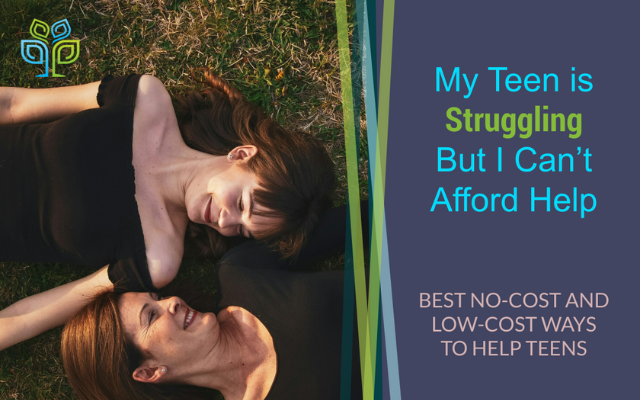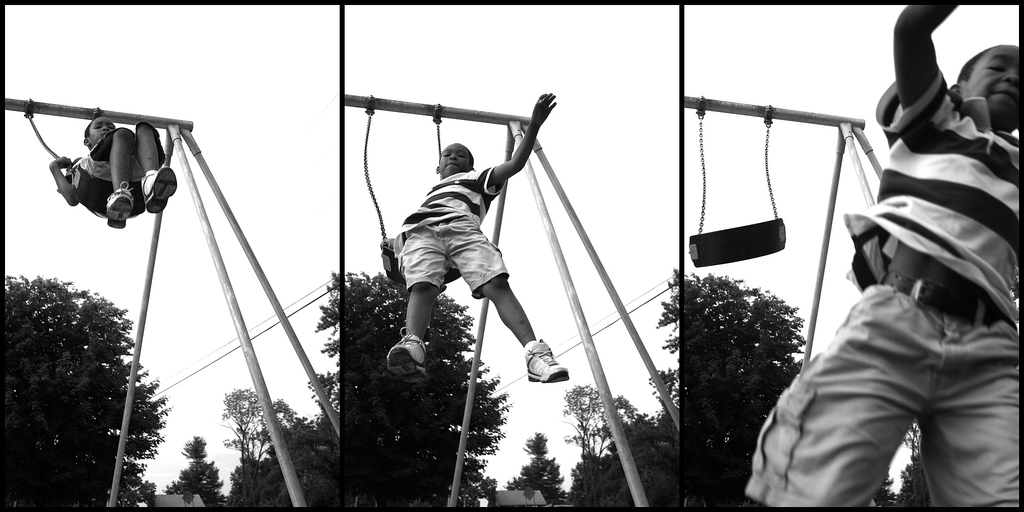Recently I’ve been telling the story about how one of our teens was struggling, then bounced back, and what we did for our teen and for ourselves to find support.
Sharing about that difficult period got me thinking about how ridiculously hard it was for us to find resources and support about how to parent tweens and teens.
Maybe I didn’t look hard enough or I was looking in the wrong places, but it even seems like parenting books for babies and toddlers outnumber books about parenting teens by at least a ratio of 10 to 1.
In addition to the lack of books, in our area – where you can get free parenting classes if your child is young – there are NO parenting classes that exist if your child is over 12 years old.
What gives?
It’s as if our whole culture is saying, “We’ll support you when you’re trying to get your young one to sleep at night, eat their veggies, or get through a tantrum, but as soon as he’s tempted by peers, screens, alcohol, drugs, relationships, driving, and all the hard stuff… good luck!! You’re on your own!”
As much as I love working with parents one-on-one or in small groups, for many families, for various reasons, this isn’t an option. I don’t like the thought that parents – maybe you – could be hurting the way I was a few years ago, and not offer to help.
So here are our top 3 no-cost and low-cost things that got us through our most challenging times…
1. Create a community or “support group” with your friends
I believe that what parents of teens need most is: community. And it doesn’t have to be hard to create it. One of the easiest ways is to simply invite your child’s friend’s parents to get together.
Here’s how I did it:
- When our child was in middle school, I sent a group text message to their friend’s parents that said, “I don’t know how your kids are doing, but mine are struggling and our kids are in each other’s houses a lot. Want to get together to share how your family is doing so we can ‘parent’ each other’s kids better when they’re over?”
- You can meet at your place (when your kids are not home), or at a park, library study room, or coffee shop. True story: I’ve even met with a group in a cemetery.
Once you get together, here’s how to facilitate the group:
- Adopt a “no advice-giving” agreement. The group goal is NOT to give advice or to solve problems. The goal of the group is to be less alone, to normalize the struggle, to deeply listen to each other, to share hope, and to support each other.
- Ask questions and reflect. At the end of each person’s sharing, leave a few minutes for people to ask questions of the sharer, or reflect back what they’ve heard. It’s not a time for others to respond or share their own story, nor is it a time to share platitudes, or “Oh you think that’s bad– listen to THIS…”
- Create group agreements. Besides “no advice giving”, talk about how you want to handle confidentiality. Discuss scheduling, location, and how often you want to meet (once a month is what I recommend). Discuss what would you like group members to do if they see that your child appears to be struggling, distressed, or making poor choices.
- Appoint a facilitator to be the timekeeper so that everyone gets an equal time to share. The facilitator can rotate at each meeting, and also be the person who reminds people to refrain from offering advice.
- Before you leave, schedule the next meeting. You can meet at the same time and location every month or at a different one. Just get it scheduled while you are still in person.
2. Grab our favorite books about parenting teens
You can either get these for free at the library or you can buy them…
Brainstorm: The Power and Purpose of the Teenage Brain by Daniel J. Siegel MD
3. Get help for your teen (and you)
We have a great short course about parenting teens that many parents have described as “transformative”. It’s self-paced, packed with goodness and wisdom, and available here.
Or– if you want low-cost access to a parent coach, a like-minded warm, supportive virtual community, with pre-vetted resources (including the teen short course) so that you don’t have to feel alone or wonder what to do with your teen, email us at info@happilyfamily.com to see if registration is open for The Village. Members also enjoy a live, interactive weekly “Tea Time” with a parent coach. And a Q and A session with Jason and me, once per month.
Now, I want to hear from you. Which, of the top 3, would make the biggest difference for you and your teen?
Let me know in the comments below. We read every one!
Sending strength and solidarity,
Cecilia and Jason










Just wondering how meal times were factored into this approach. Did you have an expectation she would come join the family for dinner/come when called to eat? Or did the unlimited screen time also apply to this situation i.e. she just came and ate when she was ready?
Anne-Marie, great question. Yes, we had an expectation that she’d come to meal times. Meal time = family time.
Joseph, it’s great that you are considering this. And, for some context, our child was probably 8 years old when we tried this experiment. Just know whatever you do, it’s not permanent, treat it like an experiment and continue to change it if you don’t get the results you want for your child.
Thank you for the post! I have a question that I have struggled to find ANY information on ANYWHERE… what do you do when your children play games that are not in alignment with your values? My children are 6 and 4. We no longer allow YouTube in our house due to the kinds of “stuff” they choose to watch/what YouTube recommended to them. We don’t allow certain games. They are/were still able to find some “playthroughs” on other apps FOR KIDS their age… maybe you’ve heard of some of these games, greedy granny, piggy, poppy? They are scary and mean games. My kids agree they give them nightmares, however, they still choose to seek them out. It feels like the more I try to control it the more they fight it. I have tried a more laid back approach, and sometimes the novelty wears off, they move on to another game/videos. Other times this doesn’t seem to work or the novelty takes longer to wear off than I’d hoped. Any suggestions? I feel like I’m being too permissive and am not sure how to set a boundary when I am unable to block everything everywhere/am not able to police them ALL the time as I have 2 other children (2 and 10 weeks). Please help!! Also, it may be worth noting we do limit their screen time to 2 hours a day by using a similar method to yours, however, it is more conversation then them writing a plan out due to their age.
When our kids were younger (as yours are) we used a different approach. We had limits about how much time they spent on screens. They recorded their time playing, they used a stop watch so they would know when to finish, and they only were allowed access to certain games. We kept the screens in a public area of the house so that we could monitor how much time they spent on the screens and we could see if they went over their time. If they went to games or content that we didn’t allow, or if they went over their time, then we had a conversation about what they could do differently next time. It’s okay to have limits, especially with young kids.
Do you have any suggestions for modifying it for a 6 year old? I would like screen time to be unlimited and them learning to regulating themselves, but I’m worried about too much screen time.
When our kids were younger we gave them a set amount of time like 1-3 hours per week on screens. They could use it anytime during the week that they wanted, they set the timer, got off when the timer was over, and recorded the time on a sheet. I was a “baby step” towards self regulation. They made mistakes of course, but that’s all part of the learning!
My daughter is three and we didn’t show her any screens until she was about 2 1/2. She might watch an hour or so a few times a week after school. I’ve been really confused about what is right, what is not right. She’s not old enough to set her day so extensively and I really try to avoid the reward-with-a-video thing as much as possible. But she generally listens when we say it’s time to turn it off (I used to set timers but that fell away). What I’ve come to is the long-term modeling of not being glued to my phone in front of her and the fact that we don’t own a TV makes it a little easier to keep it away. But how would you suggest working with someone so young on the same format?
Thanks for the question, Sonja. I don’t recommend this approach for toddlers. With young children the American Academy of Pediatrics says, “Evidence is sufficient to recommend time limitations on digital media use for children 2 to 5 years to no more than 1 hour per day to allow children ample time to engage in other activities important to their health and development and to establish media viewing habits associated with lower risk of obesity later in life.” You can read more about AAP’s recommendations here: https://pediatrics.aappublications.org/content/138/5/e20162591
Hi! We absolutely love this idea, and are trying it with our 10-year old son. We are finding that he is rushing through his plan in order to get back to screen time. On some days he is using as much as 4 hours a day…too much in my opinion. We have discussed the need for him to put effort into his plan, and it still seems that short of playing with friends, he resorts to screen time. We have considered using an app to shut down the iPad after one hour, but hesitate to go there. Any tips?